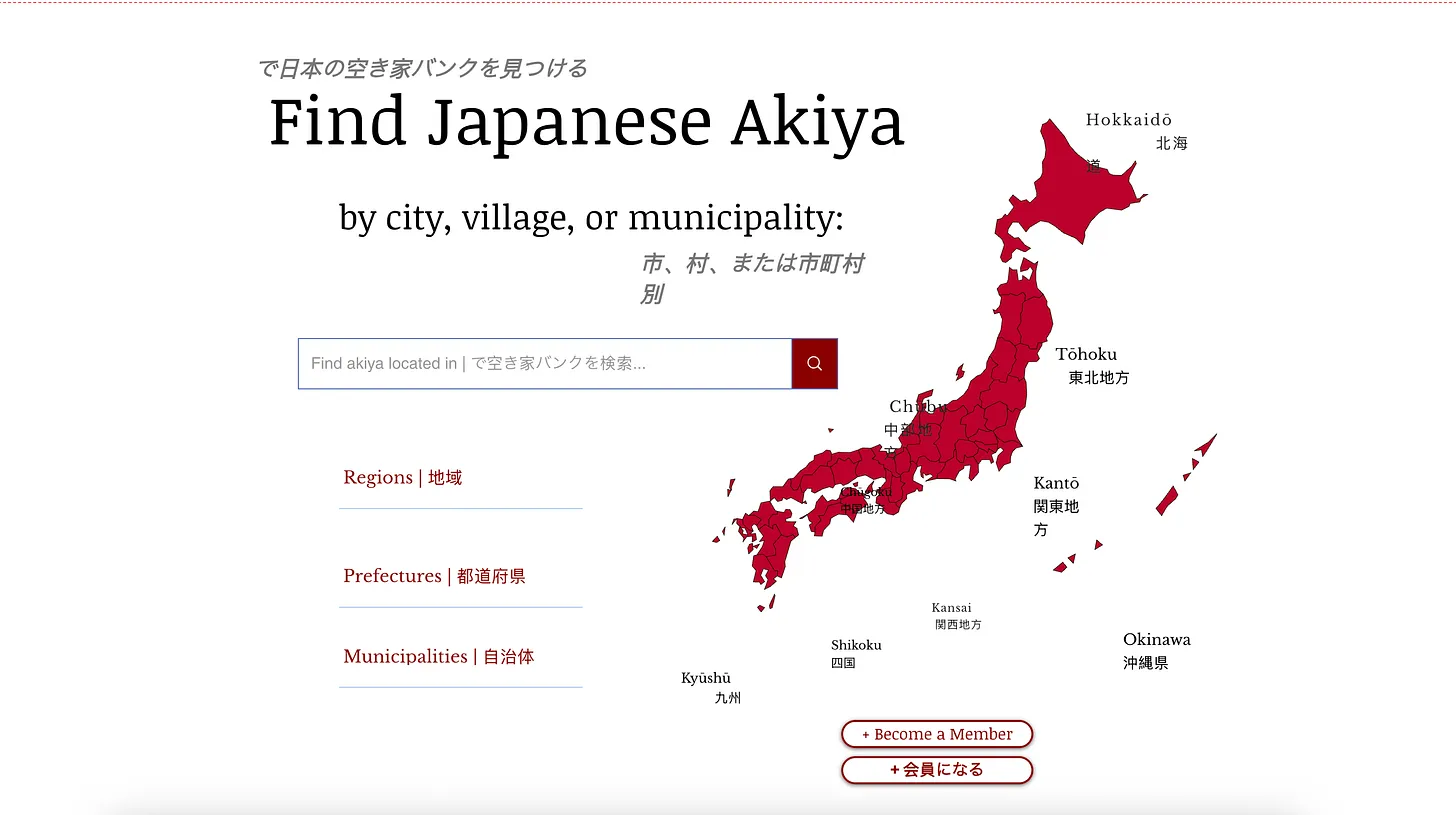Everyone knows about akiya banks by now. Those municipal websites listing abandoned houses for cheap prices have made international headlines and sparked dreams of owning a traditional Japanese home for the cost of a used car. But here's what nobody talks about: the best akiya properties never make it to those online databases.
After years of working with Japanese municipal offices and helping foreign buyers navigate the akiya market, we've discovered that there's an entire hidden layer of properties that exist only in filing cabinets, local conversations, and the minds of municipal employees. These aren't conspiracy theories or secret listings—they're just the reality of how small-town Japan actually works.
Why Some Akiya Stay Hidden
Language barriers create invisible walls. Most municipal akiya bank websites are built for Japanese speakers, period. Even when properties are technically "listed," they're buried in local Japanese websites with zero English support, using terminology and navigation that makes them impossible for foreigners to find.
Municipal staff overwhelm leads to selective listing. Many rural town offices are run by just a few employees handling everything from marriage licenses to property databases. When they get a decent akiya, posting it online means dealing with dozens of inquiries they don't have time to manage. It's easier to help the local who walks in and speaks Japanese.
Owner privacy preferences. Some property owners specifically request that their homes not be advertised online. They want to meet potential buyers personally, understand their intentions, and maintain control over who gets access to their family property.
Properties move through word-of-mouth networks. In small Japanese towns, news travels fast. A desirable akiya might be spoken for before anyone thinks to update a website. The local real estate agent, municipal employee, or neighbor has someone in mind before the listing goes live.
Municipal websites aren't maintained consistently. Some town offices update their akiya bank quarterly. Others haven't touched theirs in two years. The property might be available, but the website doesn't reflect current reality.
The In-Person Advantage
This is where showing up in person changes everything. When you walk into a municipal office in rural Japan and express genuine interest in moving to their town, you're not just another email they'll eventually get to—you're a real person standing in front of them.
Municipal employees become your advocates. Once they understand you're serious about joining their community (not just buying a vacation house), many will pull out files that never made it online. Properties where the paperwork isn't quite finished, houses where the family is still deciding, akiya that just became available yesterday.
Access to the "pre-listing" market. Some of the best properties get resolved before they ever hit public databases. Municipal offices often know about houses that will become available soon—elderly owners planning to move to care facilities, families dealing with inheritance questions, properties where the cleanup is almost finished.
Language support becomes available. Many municipal employees speak more English than their websites suggest. In person, they can pull out translation apps, draw maps, and communicate in ways that email exchanges can't match.
Immediate problem-solving. Questions that might take weeks to resolve through online inquiries get answered on the spot. Legal requirements, renovation restrictions, residency obligations—all the details that matter get clarified immediately.
What We've Found Through In-Person Visits
Over the years, our team has visited dozens of municipal offices across Japan. Here's what we've discovered:
The filing cabinet properties. Almost every office has a stack of properties that haven't made it online yet. Some are waiting for photos, others need paperwork updates, many are just victims of busy schedules and limited staff time.
Relationship-based access. Once you build a relationship with municipal staff, they remember you. When new properties come available, you get a phone call before anything goes public. This isn't favoritism—it's small-town efficiency.
Flexible requirements. Online listings often present rigid requirements that seem non-negotiable. In person, you learn which rules are strict and which are more like guidelines. Municipal staff can explain the spirit behind requirements and how serious applicants navigate them.
Hidden gems in unpopular areas. Some towns have amazing properties but terrible websites. Their akiya banks look unprofessional or are difficult to navigate, so fewer people bother investigating. Meanwhile, incredible houses sit waiting for buyers who make the effort to visit.
The Heritage District Reality
While we can't verify specific policies about heritage districts removing properties from online databases, we can confirm that historic preservation areas operate differently from typical rural towns. These municipalities deal with more complex regulations, stricter oversight, and properties that require specialized knowledge to transfer properly.
Heritage preservation districts often prefer in-person consultations because:
Renovation requirements are complex. Properties in historic districts come with specific restoration guidelines that can't be easily explained in online listings. Municipal staff need to walk buyers through preservation requirements, permitted materials, and approval processes.
Buyer vetting is more thorough. Towns with historic designations are protective of their character. They want buyers who understand and respect preservation goals, not investors looking for cheap properties to flip.
Documentation is more extensive. Historic properties often require additional paperwork, special permits, and coordination with cultural affairs departments. These processes are much easier to explain and manage in person.
How We Navigate the Hidden Market
This is exactly why our service exists. While other companies focus on scraping online databases, we focus on relationships with municipal offices across Japan. Our team regularly visits town halls, builds connections with local staff, and maintains ongoing communication about properties that might be coming available.
We speak the language. Our Japanese team members can navigate the cultural nuances of municipal bureaucracy, understand local dialects, and communicate effectively with older staff members who might not be comfortable with email.
We understand the requirements. Each municipality has different processes, different paperwork, and different expectations for new residents. We know which towns are foreign-buyer friendly and which ones have complicated residency requirements.
We're there when properties become available. Because we maintain ongoing relationships with municipal offices, we often hear about properties before they're officially listed anywhere. This gives our clients access to opportunities that never reach the general public.
The Bottom Line
The online akiya bank system is great for getting an overview of what's available in different regions. But if you're serious about finding a truly special property at the best possible price, you need access to the hidden market that exists only through in-person relationships.
This isn't about gaming the system or getting unfair advantages. It's about understanding how rural Japanese bureaucracy actually works and positioning yourself to benefit from it. Municipal offices want to help serious buyers who will contribute to their communities—they just can't do it effectively through websites alone.
The best akiya properties aren't hiding from you intentionally. They're just waiting for someone who cares enough to show up and ask for them in person.
Want access to Japan's hidden akiya market? Our team maintains relationships with municipal offices across the country and regularly visits towns to find properties that never make it online. Let us put those relationships to work for you.
Take the Next Step
Join our community for exclusive insights and resources on Japanese real estate investments.

Our team
Meet the founders.

Derek has been working in the Airbnb space for the past 10+ years and recently purchased a home in Japan. He is excited to bring this investment opportunity to others in the States & abroad.

Nick has a passion for adventure and has always dreamed of owning a property in Japan. His dreams finally came true when Derek brought him in on a deal of a lifetime in Hokkaido, Japan - one of Nick's favorite places on Earth.


